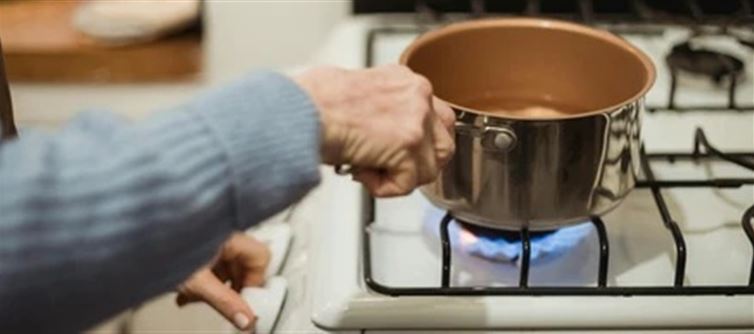
Dr. Chopra identified five common household items that could appear innocuous at first but could eventually present significant health hazards in his essay published on May 17. You must permanently get rid of any toxic objects in your kitchen.
"Do you believe your kitchen is secure? These five commonplace objects may be more harmful than beneficial. He wrote, "It's time to reconsider not just what you cook, but also what you cook with."
1. Nonstick pans:
Cookware that has been overheated may emit toxic fumes, and scratches may cause dangerous compounds to seep out. Chemicals from older pans that contain PFOA and PFAS can build up in the body and cause health problems. These substances have been connected to long-term toxicity, immune system impacts, and hormone disruption.
What to use instead: Steer clear of broken or overheated pans and opt for cookware made of glass, ceramic, cast iron, or stainless steel.
2. Aluminum foil:
Aluminum foil can contaminate your food with metal if it is used with acidic foods or at high temperatures. Neurological problems and an elevated risk of Alzheimer's have been linked to prolonged exposure. Additionally, it is not biodegradable, which is bad for the environment and your health.
Instead, use silicone or glass containers for storing and reheating, and parchment paper for baking.
3. Plastic food containers:
Many plastics, particularly older or lower-quality ones, have the potential to release dangerous chemicals like phthalates, BPA, and BPS, especially when they are microwaved or come into contact with hot, acidic, or greasy food. These impair immunological response, interfere with reproduction, and mess with hormones. Black plastic can be poisonous and is frequently made from recycled technological waste.
What to substitute: Food should be kept in stainless steel, glass, or ceramic containers. Even if a plastic is microwave safe, don't put it in the microwave.
4. Plastic cooking utensils:
Plastic spoons and spatulas can leak harmful compounds, including colors, flame retardants, and microplastics, when heated. These have the ability to get into your food and build up in your body, which can lead to chronic toxicity and inflammation. This exposure is increased when cooking with plastic on a regular basis.
What to use in its place: Use bamboo, stainless steel, or wooden utensils. They are more environmentally friendly, robust, and safe.
5. Gas stoves:
Indoor air pollutants such as carbon monoxide, nitrogen dioxide, and benzene are released by gas stoves and can raise the risk of cancer, respiratory infections, and asthma. The elderly and children are particularly at risk in homes with inadequate ventilation.
What to substitute: For cleaner air, use electric or induction cooktops. Improve ventilation at the very least by opening windows, installing a chimney or exhaust fan, and, if at all possible, using an air filter.
Disclaimer: Readers should be aware that this article is merely meant to be informative and should not be used in place of expert medical advice. If you have any queries concerning a medical problem, you should always consult your doctor.




 click and follow Indiaherald WhatsApp channel
click and follow Indiaherald WhatsApp channel